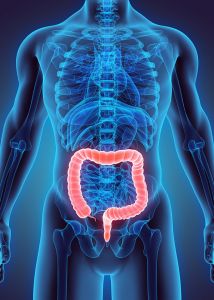June 5, 2017
June 5, 2017

NORTHAMPTON – Drs. Michelle Helms and Holly Michaelson, at Cooley Dickinson General Surgical Care, are pleased to announce the launch of the Enhanced Recovery After Surgery (ERAS) protocol for patients undergoing colon surgeries. Cooley Dickinson affiliate Massachusetts General Hospital developed an award-winning ERAS pathway to achieve quicker recuperation after surgery for colon conditions such as polyps, cancer, diverticulosis, and inflammatory bowel disease. Their goal was to disrupt the body’s normal function as little as possible, allowing for quicker return to homeostasis (a stable, balanced state of bodily functions). Based on their experience, Cooley Dickinson General Surgical Care has tailored a pathway of care for patients here in the Pioneer Valley that the practice began implementing in January of this year.
Preparation and Pain Prevention
The Enhanced Recovery Protocol begins with preoperative counseling so patients have clear expectations of every step of their care. Patients are asked to eat carbohydrate-rich meals, get extra hydration, and stay active for 3 days before surgery. They also drink 20 ounces of Gatorade three hours prior to surgery to give their bodies additional electrolytes and glucose while they are fasting.
Recognizing that pain and its associated physiologic stress is extremely taxing, the practice has implemented a multi-modality pain control regimen. Patients are pre-medicated prior to surgery, targeting nerves and inflammation. Anesthesiologists administer a transversus abdominus plane (TAP) block to numb the abdominal wall. In combination with an around-the-clock dosing of acetaminophen and NSAIDs (nonsteroidal anti-inflammatory drugs), this minimizes narcotic use and its resultant constipation. With less discomfort, patients are able to move around on the day of their procedure, promoting quicker return of bowel function; patients are now fed a regular diet on the evening of surgery.
Enhanced Infection Prevention
The ERAS protocol also includes recommendations to reduce risk of infection by having patients take antibiotics to cleanse the colon on the day before surgery. Drs. Helms and Michaelson and their experienced nursing staff are also vigilant in their attention to sterility in the operating room, taking extra care to protect the skin and underlying tissue when the colon is handled and removed.
Minimized Disruption
Most importantly, patients are now frequently ready for discharge from the hospital on the day after surgery. Their recovery is boosted by minimal pain, quick resumption of diet, and maintenance of mobility. They are happy to return home sooner, and getting back to everyday life more rapidly seems to help speed mental and emotional aspects of recovery as well.
“We’re very pleased with the launch of the ERAS protocol,” says Dr. Helms, “primarily due to the uniformly positive feedback we are receiving from our patients. We’ve adopted the best practices from our affiliate colleagues at Mass General, and we’re excited to be able to promote quicker, less painful recovery from surgery.”
Momentum for ERAS
One of ERAS’s primary champions at Mass General Hospital is Chief of Colorectal Surgery Liliana Bordeianou, a surgeon in the Division of Gastrointestinal and General Surgery. Dr. Bordeianou has helped pioneer the expansion of a standardized ERAS protocol within the greater Partners Healthcare Network, and the organization used these efforts to establish the PHS Colorectal Collaborative.
“We have 10 years of accumulated data from around the world,” says Dr. Bordeianou, pointing out that though these practices are relatively new in the United States, they date back a decade in Europe. “ERAS protocols result in better outcomes: a 60 percent reduction in complications, length of stay reduced by a whole day, and people in less pain.”
Dr. Bordeianou credits Dr. Helms for taking initiative at Cooley Dickinson, explaining that because some practices are so cemented in the traditional protocols of surgeons, nurses and medical staff, it’s difficult to change institutional behavior, even when armed with incontrovertible evidence. “Just finding a leader who’s willing to take on changing the behavior at various places is a real step forward,” she says. “Many times people aren’t willing to take on that extra effort.”
Improved Patient Experience
Praxis notwithstanding, the inertia of habit is giving way to the more immediate and visceral motivator of patient response, which has been considerable. And much of it almost seems just logical:
“We don’t starve them, so they don’t come in nauseated or dehydrated before they’ve even had the surgery,” Dr. Bordeianou elucidates. “We give them preemptive analgesics to minimize the need for narcotics after surgery, and it reduces nausea, constipation”—basically all the things any patient would prefer to avoid during recovery.
Peter Martindale is a 60-year-old veteran who was referred to the CDMG General Surgical Care practice by the VA Hospital in Northampton after a colonoscopy discovered a 30mm polyp in his colon that could not be removed during the procedure (as many smaller polyps typically can). Martindale is a veteran of surgery as well as the military; to date he has had more than 14 procedures, including several for various military-related injuries and one for diverticulitis where part of his colon was removed.
Peter was one of Dr. Helms’ earliest patients for whom the ERAS protocol was implemented through her practice. He checked in for surgery at Cooley Dickinson Hospital’s Kittredge Surgery Center in February of 2017, and the difference he experienced in comparison with his previous surgeries was, according to him, rather remarkable:
“When they took out part of my colon in the late ’90s for diverticulitis, it took me months to get back on my feet, so for me to be up and going a week or so afterwards… this was totally different,” he says. “I could not believe how well I did coming out of that—and I’m a 60-year-old man, compared to the first operation when I was in my thirties.”
Martindale says that following the protocol made him feel so much better that it inspired confidence in him.
“She told me not to lift anything too heavy and whatnot,” he recalls of Dr. Helms’ post-op instructions, “but I felt like I could have. I recovered fast and went a lot of places afterward, with no issues.
“I really think she’s one of the best doctors I’ve ever had,” he says, “and I don’t say that lightly. I’ve had a lot of surgeries.”
Rising Importance

The ERAS protocol is an effective, compassionate tool that is quickly becoming widely accepted as a care standard in the greater community of colorectal surgery. Additionally, the importance of refining and improving colorectal surgery is growing, since the incidence of colon and rectal cancers has been rising at an alarming rate in younger people (patients under 50). Screening remains a vital tool in prevention and early intervention for colorectal cancers, and when surgery is necessary, standards like the ERAS protocol can make all the difference in a patient’s experience. Best of all, it’s a relatively simple formula that can be put into practice just about anywhere.
“By implementing ERAS,” says Dr. Helms, “we’re making sure that the same progressive, high-level, evidenced-based care delivered in Boston is available here in Western Mass. as well.”

